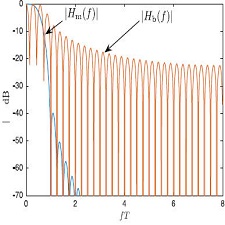توضیحات
چکیده
از دیرباز بررسی نقش جمعیت و اثرات آن بر اقتصاد جوامع مختلف مورد توجه اندیشمندان بوده است. بر همین اساس نظریات مختلفی ارائه شده که معروف ترین آن نظریه جمعیتی مالتوس است. نظریه جمعیتی مالتوس که دارای نگرشی بدبینانه نسبت به جمعیت است، هر چند در فضایی متفاوت از ویژگی های اقتصاد نوین ارائه شد، اما هنوز بر دیدگاه اکثر اقتصاددانان در مورد جمعیت سایه افکنده است. جالب اینجا است که حتی با اینکه مالتوس بعدها بسیاری از عقاید خود را اصلاح و یا تعدیل کرد، هنوز اکثر اقتصاددانان بر نظریات ابتدایی اوتاکید می ورزند. در این راستا این مقاله ضمن نگاهی محدود و مجدد به نظریه جمعیتی مالتوس و اصلاحاتی که خود بر این نظریه وارد ساخت به دنبال این است که به بررسی نظریات دو تن دیگر از اقتصاددانان مطرح یعنی جان مینارد کینز و گری بکر بپردازد. نظریه پردازانی که دید بسیار منفی به اثرات افزایش جمعیت داشتند ولی آنها نیز سرانجام مجبور به تغییر موضع خود شدند. همچنین این مقاله به بررسی شواهد تجربی و نظریات جدید ارائه شده در زمینه جمعیتی که علی رغم نگرش بدبینانه حاکم، بر اثرات مثبت رشد جمعیت تاکید دارد می پردازد. آنچه این مقاله نتیجه گرفته است، رد افکاری است که بسیاری از مشکلات اقتصادی جوامع را به رشد جمعیت نسبت داده و سعی کرده آنها را به مسائلی دیگر نظیر ضعف مدیریت و برنامه ریزی، قوانین و نهادهای سیستم اقتصادی حاکم بر کشورها، رفتار انسان ها، اتلاف منابع طبیعی و …نسبت دهد.
ABSTRACT
Scholars have long been interested in examining the role of populations and their effects on the economies of different societies. Accordingly, various theories are presented, the most popular of which is Malthus’s population theory. Malthus’s demographic theory, which has a cynical view of the population, though presented in a different context from the features of the modern economy, still casts a shadow over the view of most economists. Interestingly, even though Malthus later refined or modified many of his ideas, most economists still adhere to basic theories. In this respect, this article, while looking at Malthusian population theory and its reforms, seeks to examine the views of two other prominent economists, John Maynard Keynes and Gary Becker. Theorists who had a very negative view of the effects of population growth, but they also had to change their stance. This article also examines the empirical evidence and new theories presented in the field of population that emphasize the positive effects of population growth despite the prevailing cynical attitude. What this paper concludes is a rejection of ideas that attribute many of the economic problems of societies to population growth and have tried to address them on other issues such as the weaknesses of management and planning, the laws and institutions of the economic system governing countries, human behavior, Waste of natural resources and so on.
Year: ۲۰۱۶
Source : ۰
By : Rahim Dalali Esfahani Alireza Esmaeilzadeh Alirezaa Esmaeilzadeh
File Information: persian Language/ 24 Page / size: 442 KB
سال : ۱۳۹۵
منبع : ۰
کاری از : رحیم دلالی اصفهانی علیرضا اسمعیل زاده علیرضا اسماعیل زاده
اطلاعات فایل : زبان فارسی / 24 صفحه / حجم : 442 KB









نقد و بررسیها
هنوز بررسیای ثبت نشده است.